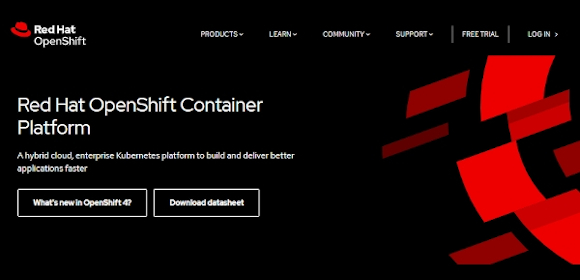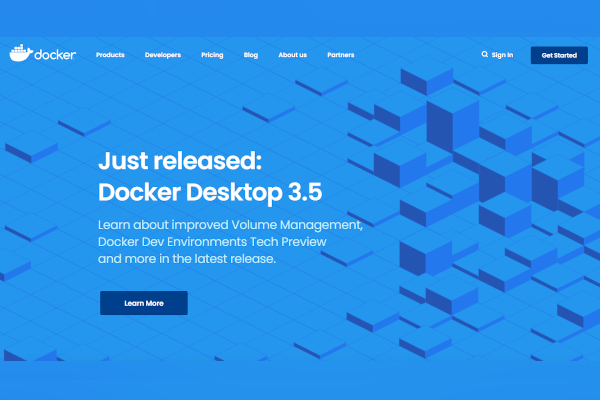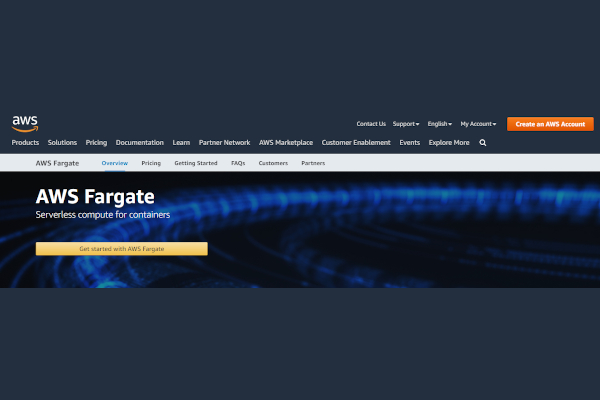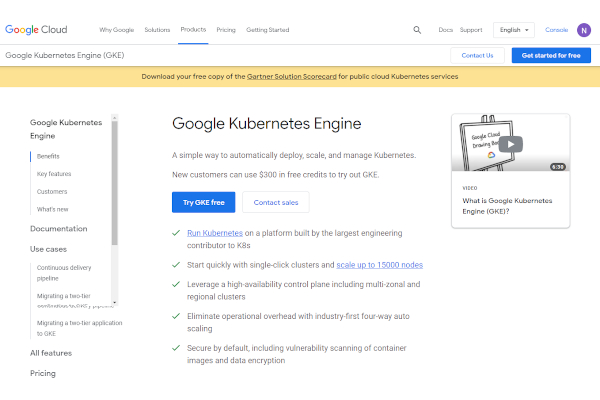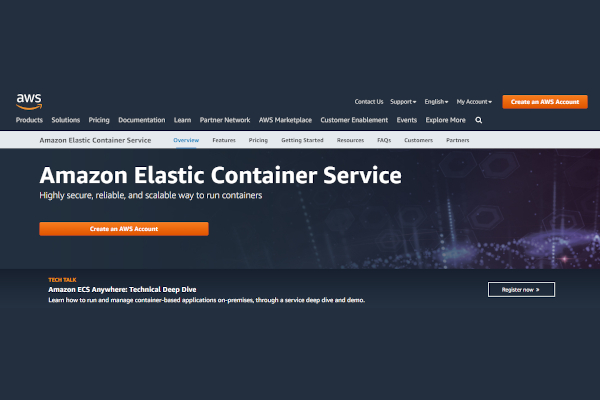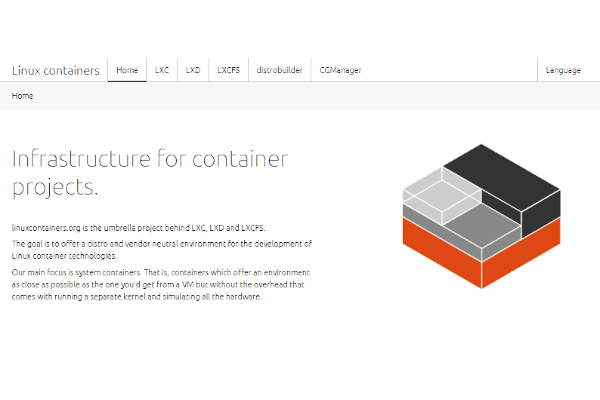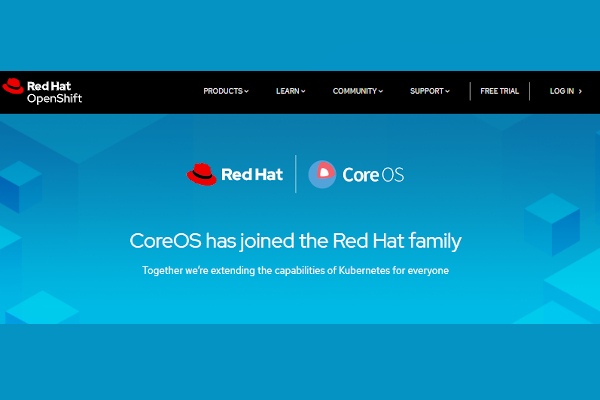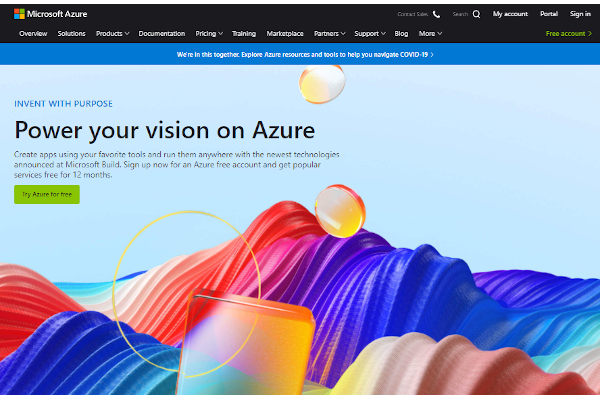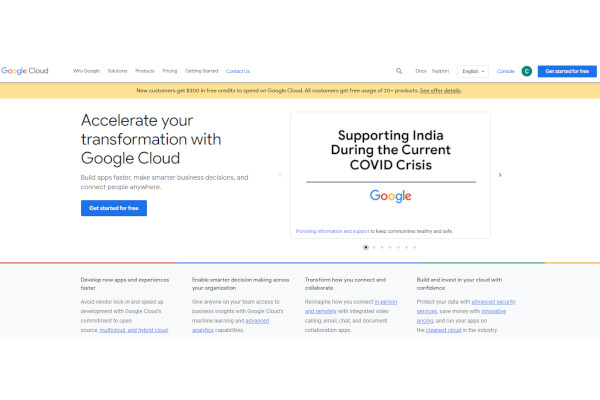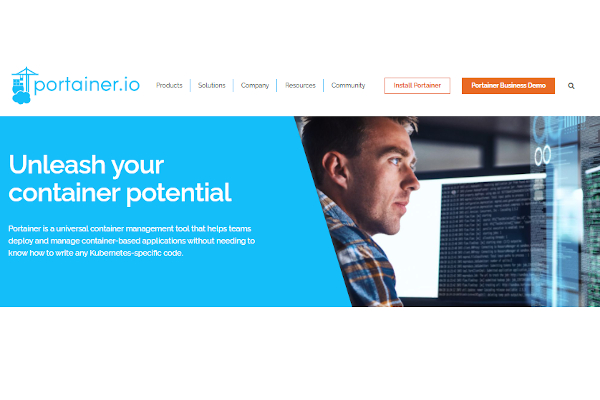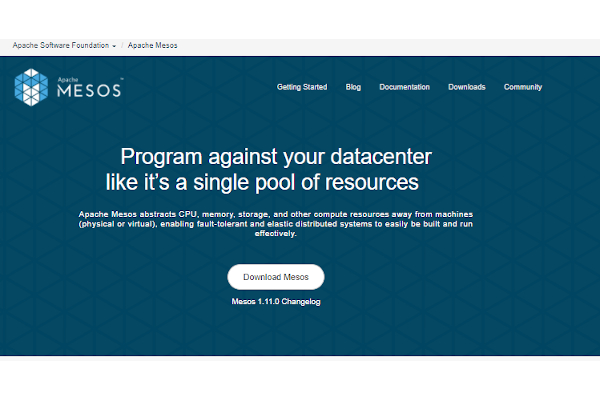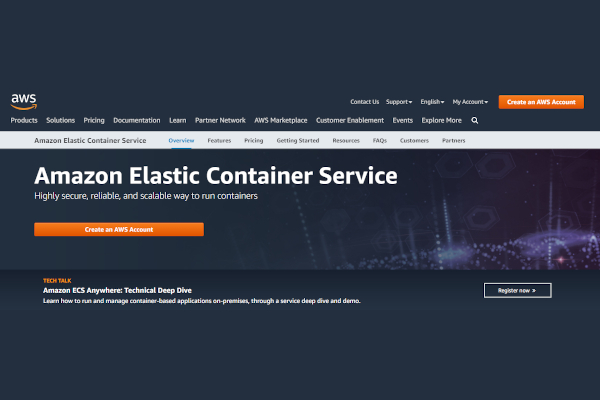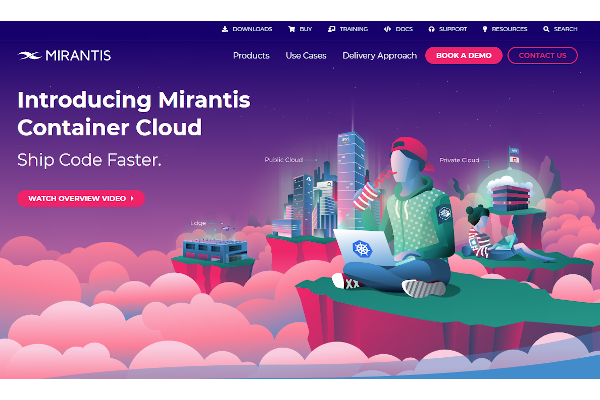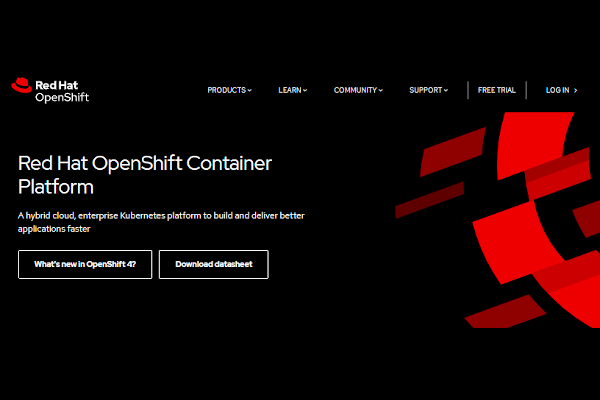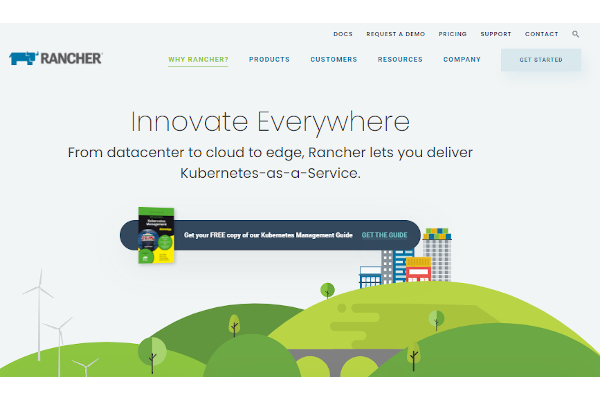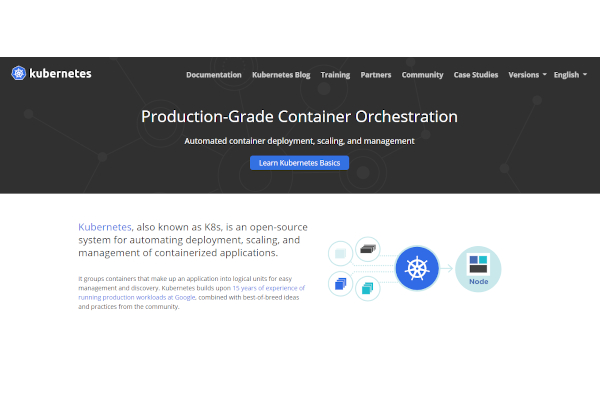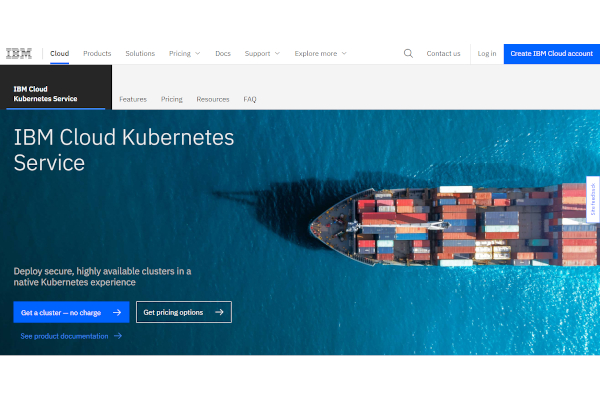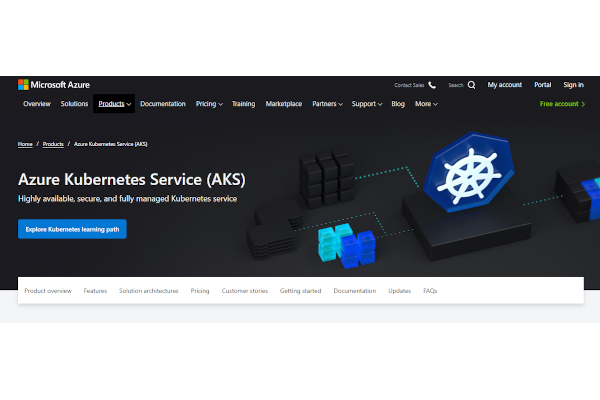The world is developing continuously due to technology. In today’s professional world, apps or software are used to increase business quality, performance, and productivity. That being the case, developers develop new and gradually advancing applications. To help your developers have smooth software development, you might need container software. Continue reading below for more.
16+ Container Software
1. Docker
2. AWS Fargate
3. Google Kubernetes Engine
4. Amazon ECS
5. LXC
6. Container Linux by CoreOS
7. Microsoft Azure
8. Google Cloud Platform
9. Portainer
10. Apache Mesos
11. Amazon Elastic Container Service (Amazon ECS)
12. Mirantis Kubernetes Engine
13. Red Hat OpenShift Container Platform
14. Rancher
15. Kubernetes
16. IBM Cloud Kubernetes Service
17. Azure Kubernetes Service (AKS)
What is Container Software?
With the digital transformation in the modern era, the professional industry requires software. For this reason, developers plan and generate new applications from time to time. However, as all things are, you tend to face complexities. Software development is not always successful. Developers will need solutions to untangle threads, such as container software. Container software is a technological tool with advanced features and functionalities, allowing developers to share applications to multiple computing environments regardless of the operating system (OS).
Benefits
Possibilities arise where IT departments use separate operating systems (OS), resulting in OS incompatibility with the application. Due to these situations, errors and delays is not a surprise. With container software, developers can dispense the underdeveloped application to other developers without corrupting the file. It helps you increase portability, more consistent operation, greater efficiency, and better application development.
Features
Before purchasing the software you want, you need to analyze the software’s features and functionalities to ensure you choose the best software for your company. Features and functionalities serve as the mechanics of the software, allowing them to operate and perform as you please. For this reason, it is crucial to research first to evaluate the software’s performance. That way, you can avoid investing in the wrong software. You can read user reviews containing the software’s pros and cons. You can also try free trials and versions to test them firsthand. Below are features you might need:
- Threat Intelligence
- Real-Time Monitoring
- Security Auditing
- Network Scanning
- Vulnerability Management
- Bug Fixing
Top 10 Container Software
1. Microsoft Azure
Microsoft Azure includes API lifecycle management, configuration management, data migration, and many more valuable features. Microsoft has annual revenue of $184 billion and 181,000 employees.
2. Red Hat Openshift Container Platform
Red Hat Openshift Container Platform includes deployment management, policy management, continuous integration, and more contributive features. Red Hat has annual revenue of $2.1 billion and 18,912 employees.
3. Google Kubernetes Engine
Google Kubernetes Engine includes backup for GKE, hybrid networking, identity, and access management and offers more. Google has annual revenue of $2.1 billion and 207,490 employees.
4. Amazon ECS
With Amazon ECS, users can quickly deploy, manage, and grow containerized applications with this fully managed container orchestration service. Amazon Web Services generates $2.1 billion in annual revenue and employs 59987 people.
5. AWS Fargate
AWS (amazon web services) Fargate is a technology that allows you to execute containers without managing servers or clusters of Amazon EC2 instances using Amazon ECS. Amazon web services have annual revenue of $2.1 billion and 59987 employees.
6. Apache Mesos
Apache Mesos enables linear scalability, containers, pluggable isolation, two-level scheduling, cross-platform, and more. Apache has annual revenue of $303.3 million and 2,092 employees.
7. Mirantis Kubernetes Engine
Mirantis Kubernetes Engine includes demand monitoring, workflow approval, service level agreement (SLA), and more helpful features. Mirantis has annual revenue of $91.2 million and 654 employees.
8. Docker
Docker includes application isolation, security management, enables better software delivery, and more. Docker has annual revenue of $41.5 million and 355 employees.
9. Rancher
Rancher DevOps teams may use this container security platform to adopt, manage, secure, and deploy containers and Kubernetes clusters. Rancher Labs has annual revenue of $15.1 million and 85 employees.
10. Portainer
Portainer includes packaging, container networking, architecture, datacenter, orchestration, and more innovative features. Portainer has annual revenue of $870 thousand and six employees.
FAQs
What is the purpose of container software?
Developers use container software as it provides multiple benefits and advantages to their software development. Containers simplify the deployment, patching, and scaling of applications. Containers speed up development, testing, and production for agile and DevOps teams. Containers, when built appropriately, allow a host to use nearly all of the available resources.
Why is software beneficial?
Software not only allows your computer hardware to do critical duties, but it may also improve the efficiency of your corporation. Software is one of the most valuable assets in the professional industry as it helps business operations improve productivity, quality, and management. What is more, it also ensures quality assurance and flawless governance.
Which container platform is the best?
There is multiple container software from various technology firms you might find innovative. These programs can have standard and different features, which can be weak or strong. According to most software users, the best software is Docker, AWS Fargate, Google Kubernetes Engine, Amazon ECS, LXC, container Linux by CoreOs, Microsoft azure, google cloud platform.
Technology complexities require advanced solutions. As we all know, manual methods are insufficient since they are prone to errors and take too long. Due to the market’s increasing demands and expectations, it is critical to have a technology partner. With container software, you can develop, manage, test your applications with lesser stress.
Related Posts
10+ Best Chemical Software for Windows, Mac, Android 2022
12+ Best Vulnerability Scanner Software for Windows, Mac, Android 2022
4+ Best Bundled Pay Management Software for Windows, Mac, Android 2022
10+ Best Trust Accounting Software for Windows, Mac, Android 2022
10+ Best Patient Portal Software for Windows, Mac, Android 2022
13+ Best Virtual Reality (VR) Software for Windows, Mac, Android 2022
12+ Best Bed and Breakfast Software for Windows, Mac, Android 2022
15+ Best Resort Management Software for Windows, Mac, Android 2022
14+ Best Hotel Channel Management Software for Windows, Mac, Android 2022
12+ Best Social Media Monitoring Software for Windows, Mac, Android 2022
10+ Best Transport Management Software for Windows, Mac, Android 2022
10+ Best Other Marketing Software for Windows, Mac, Android 2022
10+ Best Top Sales Enablement Software for Windows, Mac, Android 2022
8+ Best Industry Business Intelligence Software for Windows, Mac, Android 2022
10+ Best Insurance Agency Software for Windows, Mac, Android 2022
